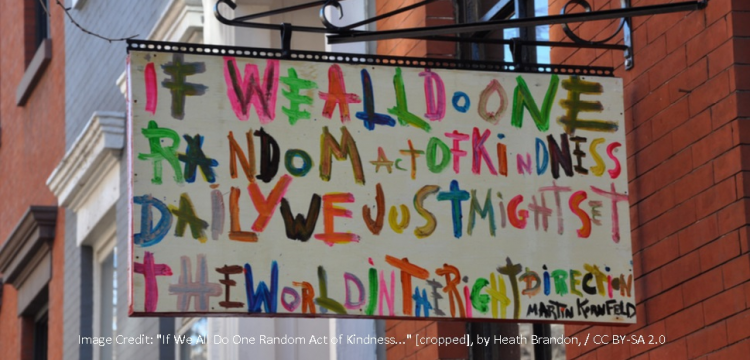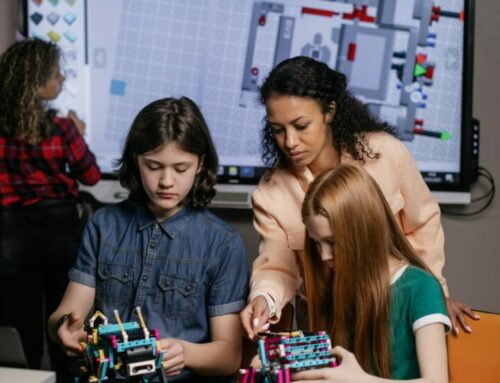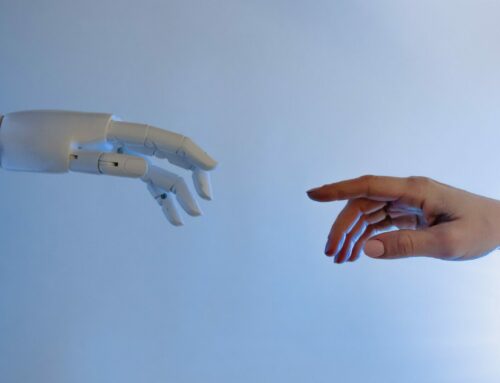Brazilian Students Encounter Kindness in American Classrooms
Susan Codone
Mercer University, USA
“Buying a $300 textbook is insane! Who does that? At home we check out our textbooks from the libraries. Nobody has to pay for books. And pizza and hamburgers every day for lunch in the cafeteria? That’s crazy. At home we might have those once every few weeks. But here, in America, my professors know my name. I like that my professors know me personally and that they care about getting to know me. I can even visit them in their office. I’ve never been to a professor’s office before. My professors are kind to me.”
Surprising? These are the words of three Brazilian students spending a year studying at Mercer University’s School of Engineering in Macon, Georgia. The three students, identified by their first name only as Matheus, Aline F., and Aline J., talked to me over coffee recently about their experiences in the Brazilian Scientific Mobility Program, which is sponsoring their year of study in America at Mercer.
For all three, this is their first year abroad and first experience in the United States. All three are pursuing an industrial engineering degree in Brazil, two at public universities and one at a private institution. As the Director of the Center for Teaching and Learning at Mercer, I was curious about their experiences in our classrooms. Over coffee, I asked them to describe learning between Brazil and the United States. Their responses surprised, startled, and ultimately inspired me.
Personable, funny, and engaging, the three of them embraced my questions and talked openly and passionately about their year at Mercer. Their responses fell into three major categories: the structure of higher education in both countries, differences in classroom behavior, and most importantly to me, the transforming power of their relationships with their professors.
I began by asking their classification – sophomore, junior, etc., and they quickly corrected me by saying that at home they simply count themselves by year, as in first year, second year, and so on until they finish their degree. They were also unfamiliar with the semester system, explaining that their universities continue year round and one can start at any time, not just in the fall as Americans traditionally do. They seemed somewhat baffled that, at the time of our interview in mid-May, the Mercer campus had so quickly emptied of students after final exams.
Matheus, Aline F., and Aline J. also expressed their confusion over the American idea of an “internship”, something they had noticed that American students seem to hinge great hopes upon obtaining, and told me that at home they expected to work after they finished their degree, not before. Matheus asked me why a student would leave school for temporary work just to return to school again, when it would be more efficient just to finish school sooner and then work – an interesting perspective and quite a cultural difference.
Without my prompting, Matheus and Aline F. described the sticker shock they experienced after encountering high-priced textbooks so familiar to American students. Aline F. explained that in Brazil, multiple copies of textbooks are stored in the library, and students can check them out while they are completing courses. Although they receive a stipend for books and equipment, they still seemed a bit outraged that anyone would have to pay that much money for a required textbook.
I nodded in agreement and wondered how we have become so complacent to allow this kind of price inflation to continue affecting students attending American schools. And while they were grateful for their meal plan in the university cafeteria, Aline J. was amazed that pizza and hamburgers were available every day in addition to other meal options – and even more surprised that American students seem to eat so much “weekend food”, as they called it.
Getting to the heart of our conversation, I asked them to describe classroom activities at home and compare them with what they had experienced at Mercer this academic year. Aline F. told me that at home, professors act more as facilitators, mainly giving assignments and tests. But here, she said, the professors stay in the classroom for the entire class time and often use technology to explain the material. While PowerPoint seems to be common between Brazil and the United States, all three students told me that their classroom experience at home varied wildly from professor-to-professor, but at Mercer, almost all of their professors used similar activities to engage students and deliver content.
The three were most amazed by Mercer’s learning management system. Aline J. told me that it was “…unbelievable to have all the course material in one place, with one simple login.” She couldn’t believe that American students have all their materials so centrally located for every course, and said that the ability to access everything so easily made learning much easier. When I mentioned that almost every American university uses some form of a learning management system, the three told me they thought American students were not grateful enough for their technology.
Finally, I asked them how their year at Mercer changed them as students, and if they would return home any different after their year studying in the United States. Matheus, Aline F. and Aline J. all said American classrooms are much more personal and engaging. Aline F. told me that this year was the first time she had ever ventured out to visit a professor in his office, and was surprised to find him eager to help her understand the course material – and to do so in person outside of class. She said that after taking business and communication courses along with industrial engineering courses, she felt she would return to Brazil transformed into a confident student and would be much kinder to her fellow students and professors. Matheus and Aline J. agreed.
To build on their comments, I asked Matheus, Aline F., and Aline J. to tell me one major way in which their classroom experience in the United States had changed them. Without hesitation, they told me their time here was transformative because of the personal time spent with their professors and advisors, both in and outside the classroom – something they had not encountered at home. All three students said they would return to Brazil much more capable of studying and understanding their course material and would give more of themselves in class now that they knew what they were truly capable of doing.
Most surprising to me, they each told me they would be kinder to their professors and fellow students because they had realized the power in learning together in a kind and welcoming environment. In America, they found learning to be personal and collaborative, and this was the biggest impact they reported. In the end, encountering kindness in their American professors, advisors, and fellow students had influenced their learning more than technology, teaching strategies, or course materials. As an interpersonal construct, kindness is vastly underrated and underreported. At a time when American universities are coming under fire for many reasons, it is heartening to see international students encountering kindness in our classrooms, being transformed by the experience, and returning to their countries to learn in kinder, gentler ways.
These students exemplify what Lao Tzu said: “Kindness in words creates confidence. Kindness in thinking creates profoundness. Kindness in giving creates love.” May the experiences of Matheus, Aline J., and Aline F. convince us to be kinder in the classroom and more aware of the transformative nature of kindness in teaching and learning.
Dr. Susan Codone is Director of the Center for Teaching and Learning at Mercer University, USA. She may be contacted at [email protected]
Suggested Citation:
Codone, S. (2015). Brazilian Students Encounter Kindness in American Classrooms. Higher Education Tomorrow, Volume 2, Article 5, https://www.patrickblessinger.com/brazilian-students-encounter-kindness-in-american-classrooms
Copyright © [2015] Susan Codone
Disclaimer:
Opinions expressed in this article are those of the author, and as such, do not necessarily represent the position(s) of other professionals or any institution.




